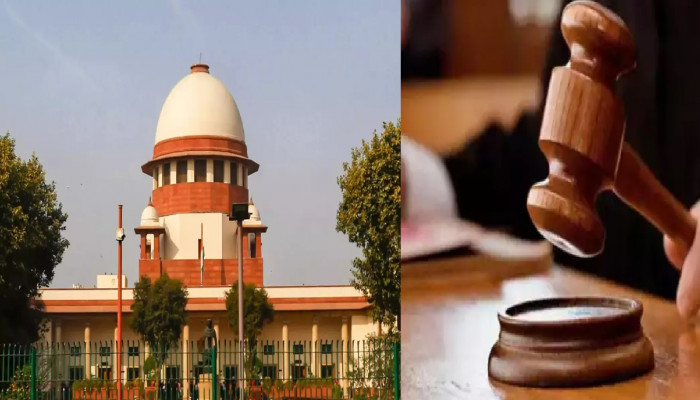Supreme Court: State cannot appropriate private property through adverse possession
- In Reports
- 05:12 PM, Nov 20, 2024
- Myind Staff
The Supreme Court has ruled that allowing the State to acquire private property through adverse possession violates citizens' constitutional rights and undermines public trust in the government. This significant observation was made by a two-judge bench comprising Justice Vikram Nath and Justice Prasanna B. Varale while deciding a civil appeal related to a property dispute.
The appeal was filed against a Punjab and Haryana High Court judgment that had overturned the decision of the First Appellate Court and restored the decree of the Trial Court in favour of the plaintiffs.
The Bench remarked, “Allowing the State to appropriate private property through adverse possession would undermine the constitutional rights of citizens and erode public trust in the government. Therefore, the appellants' plea of adverse possession is untenable in law.”
The dispute centered on a piece of land where the original plaintiffs filed a suit for possession in the Court of Sub-Judge 1st Class, claiming ownership based on revenue records. They alleged that the defendants had occupied the land illegally about 3.5 years before the suit was filed. Despite repeated requests and a legal notice, the defendants refused to vacate the property.
The Trial Court ruled in favour of the plaintiffs. However, the defendants appealed to the District Judge, who overturned the decision, dismissing the plaintiffs' suit. The plaintiffs then approached the High Court, which allowed their appeal, prompting the defendants to escalate the matter to the Supreme Court.
The Court noted that the plaintiffs had relied on jamabandi entries to prove their ownership. Referring to the entries from 1969-70, the Bench stated, “The jamabandi records the name of Shri Amin Lal as owner to the extent of half share. Revenue records are public documents maintained by government officials in the regular course of duties and carry a presumption of correctness under Section 35 of the Indian Evidence Act, 1872. While it is true that revenue entries do not by themselves confer title, they are admissible as evidence of possession and can support a claim of ownership when corroborated by other evidence.”
The Bench also examined the evidence presented by the appellants, such as records from 1879-80 describing their possession as permissive and conditional, under the term "Bikhar Bahali Kaza," meaning till the existence of an orchard. It ruled that permissive possession cannot be the basis for claiming adverse possession.
The Court further clarified that adverse possession requires continuous, open, peaceful, and hostile occupation against the true owner for a statutory period. It noted that actions like placing bitumen drums, erecting temporary structures, and building a boundary wall in 1980 did not meet the requirements for adverse possession. “In this case, the appellants' possession lacks the element of hostility and the requisite duration,” the Bench stated.
The Supreme Court upheld the High Court's decision, which was made under Section 100 of the Code of Civil Procedure (CPC). The Bench concluded that the High Court had rightly overturned the First Appellate Court's judgment and reinstated the Trial Court’s decision. The appeal was dismissed accordingly.
This judgment reaffirms the principle that the State cannot claim adverse possession over the property of its own citizens, emphasising the importance of safeguarding constitutional rights and public trust.







Comments